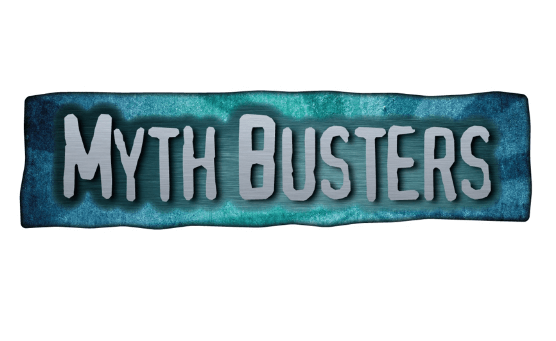Cloud security: Busting the top 5 myths

The benefits of cloud are extensive. Billions of businesses are using cloud already. But some companies are still reluctant to aggressively move to the cloud, security being the prime concern. We understand. When it’s business on the line, nobody wants to take chances.
The cloud is growing bigger every day and so are the misconceptions. Here are some worth busting.
Myth 1: I can’t control where my data resides in the cloud
As the corporate IT model progresses and new ones arrive, so do the fear of losing direct control over data and systems. The idea of the company’s servers and data placed elsewhere – when the precise location is unknown to the IT department – clearly lends itself to concern about ownership.
In fact, the truth is that with cloud you get better access and control over your data. The service providers will provide you the admin rights to control and manipulate data at will. What you wouldn’t have access to are the keys to data center and headaches to maintain it all.
Myth 2: It’s on the internet for everyone to attack
This is often repeated: Businesses can’t have critical information on the public internet, sitting on a shared device where cloud providers can easily access it.
Are local computers and networks better protected than cloud-based resources? The answer is no. Just because some of your files are hosted on a machine that doesn’t belong to you technically, doesn’t make it inherently less secure.
Cloud data centers are attractive targets because of large number of records they hold. But many cloud telephony providers handling company’s sensitive data, can invest in security far more heavily than any average business can’t.
Myth 3: My cloud provider can spy easily on my activities
The truth is that no one can access your data unless you let them. We know that data is encrypted in the cloud, but the question remains who has the access to it. A popular belief among IT guys at the moment is that controlling access to data is nearly impossible. In fact, it is not only possible but also necessary.
There are ways to ensure that right set of eyes have access to your data. Organizations – not cloud providers – should have control over encryption keys to unlock data and must demand encryption at all times. Giving away the keys to the kingdom, should never be a part of an outsourcing agreement.
Myth 4: It is difficult to achieve regulatory compliance in cloud environments
Many IT folks are not aware that the Payment Card Industry has enacted guidelines addressing cloud environments specifically. PCI-DSS 2.0 has been written with an emphasis on cloud environments. The technology and means are already there, it’s just that companies aren’t yet ready to spend the money and take steps to achieve them.
In order to run cloud telephony securely, vendors can apply for PCI DSS compliant, SAS 70 certification etc. With such security routes they can provide the organizations with an assurance that cloud security is their topmost priority. Though compliance in itself does not ensure security, but being able to have a complaint infrastructure is a big piece of the pie.
Myth 5: Being a new concept altogether, security is a new challenge
With the buzz surrounding around the cloud, there is a misconception that cloud security is a new challenge that has not yet been addressed. The truth, however, is that cloud security is not new and not even unique. Most of the security concerns about the cloud such as protecting data and sensitive information are old news.
Security concerns are the same regardless of physical or virtual components. What companies don’t understand is that when they talk about the cloud, they are still talking about data and applications in a data center, running the cloud solution. A wise investment in cloud security can provide the required visibility and control for businesses.
The Bottom Line
Cloud security is a part of inevitable progression of IT that must be embraced by companies to stay in competition. Remember the real risk here is not IT risk but a business risk of missed opportunity. Don’t miss that opportunity because of such misperceptions.
Guest post by Renuka Rana of AceCloudHosting.
Written By: Admin

